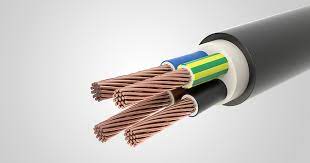As electric vehicles (EVs) get more and more well-known, knowing EV cablescompatibility and performance is essential for efficient and safe charging. EV cables are essential components of the charging infrastructure, connecting your vehicle to the power source. This is what you should be aware of to ensure that you select the correct cable for optimal performance and compatibility.
1. The types of electric vehicle cables: There’s two types of EV cables: Type 1 and Type 2. The Type 1 cables are generally used for old EV models, especially those in North America and Asia, while Type 2 cables are standard in Europe and more recent models across the globe. It’s crucial to ensure that your cable is compatible with your vehicle’s charging port for compatibility. Additionally, cables can come in different lengths. So, choose one that suits your charging setup whether at home or at charging stations in public places.
2. Charging Levels: EV cables support different charging levels, which affect the speed at which your car charges. Level 1 charging utilizes an ordinary outlet from your home, as the most slow method. Level 2 charging needs a special EV charger, and offers more rapid charging. Certain EVs and chargers can also allow level 3 as well as DC fast charging, which delivers rapid charging but requires specialized cables and infrastructure. Ensure your cable supports the desired charging level to ensure an efficient and efficient charging.
3. Cable Specifications: When selecting an EV cable, you should consider its current rating as well as the size of its conductors. Most cables are designed for 16A and 32A and 32A cables providing quicker charging. The cable must also be weatherproof and durable, particularly if used outdoors. The best cables are built to endure diverse environmental conditions, such as UV exposure and temperatures extremes, which ensures durability and longevity.
4. Security and certification: Safety is a top priority when it comes to charging high voltage systems. Make sure that the EV cable you pick is certified by recognized standards such as UL, CE, or IEC. Certified cables are safe and meet quality standards, thus reducing the risk of electrical faults or hazards. In addition, cables should have features that include thermal protection, which helps ensure that they are not overheated.
5. Future-proofing: Consider securing your charging system for EVs by selecting cables which support greater speed charging and can be used with a variety of electric vehicle models. As technology develops, having a cable that can handle greater amperages and the latest charging standards can save you from having to upgrade earlier.
6. Maintenance and Care: Properly taking care of your EV cable ensures its long-term durability and high performance. Always check the cable for indications to wear and damage and ensure it is kept in good condition and dry. Keep the cable in a safe place during times of not use to protect it from destruction and extend its life.
In the end, understanding EV cables is crucial to ensuring effective and secure charging. By choosing the best kind, specification, and quality of cable, you can enhance your experience with EV charging and protect your setup from the advancements in technology.
